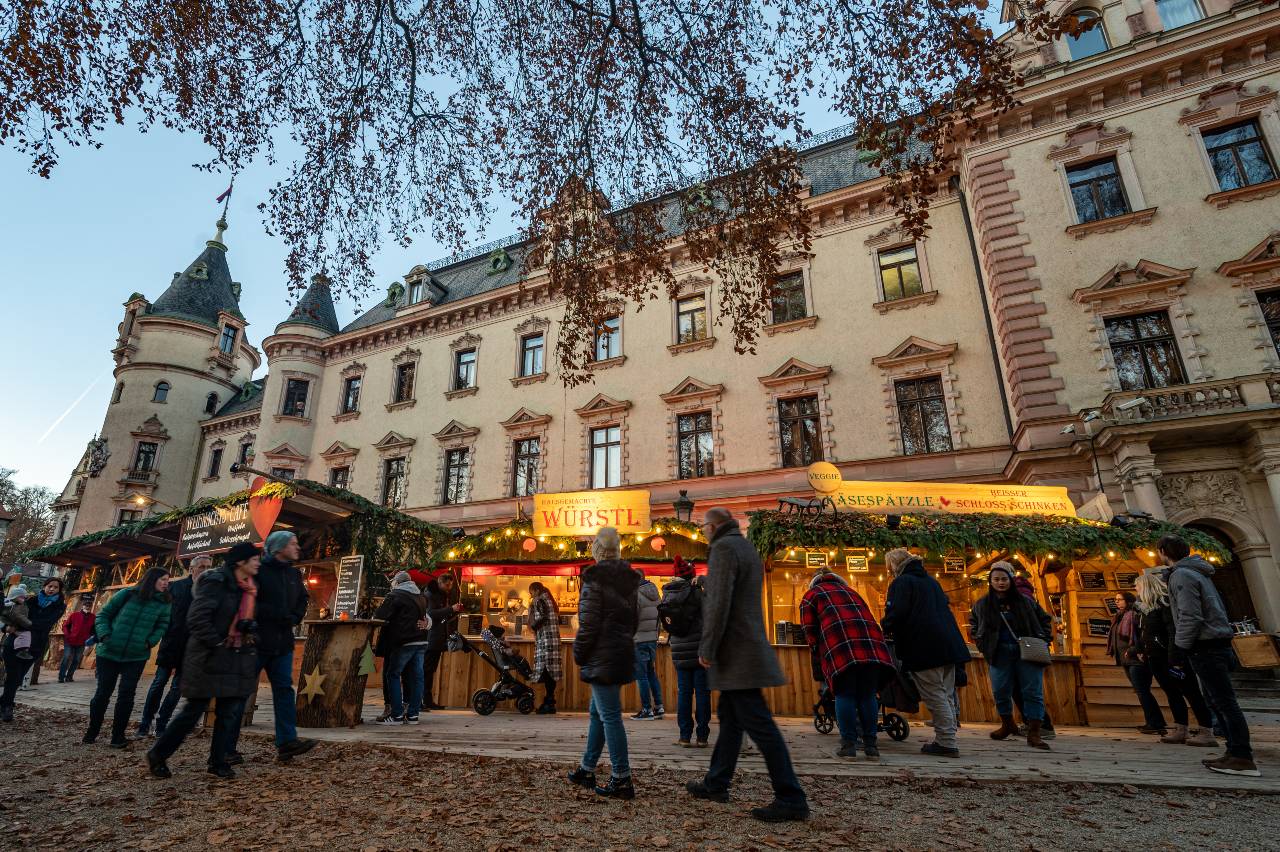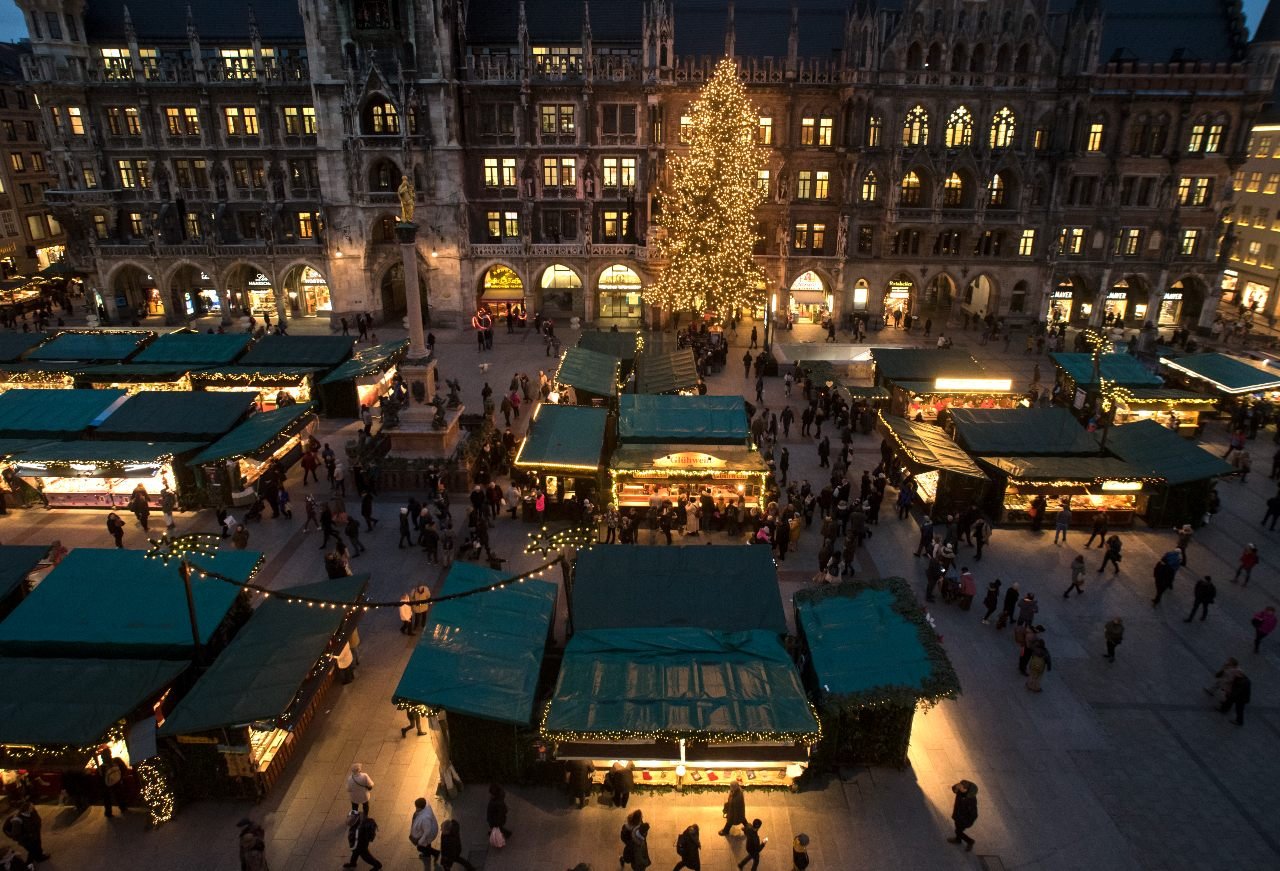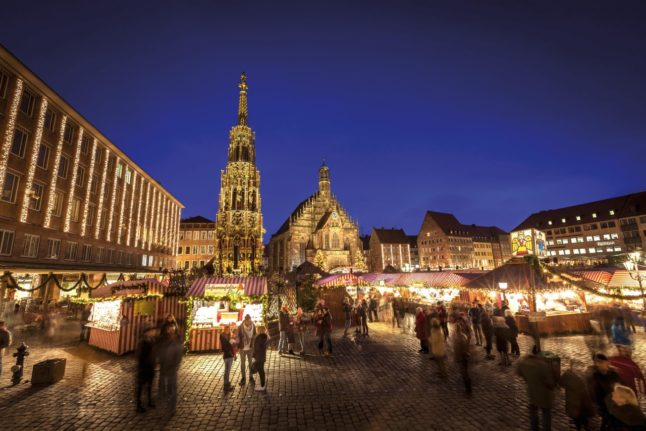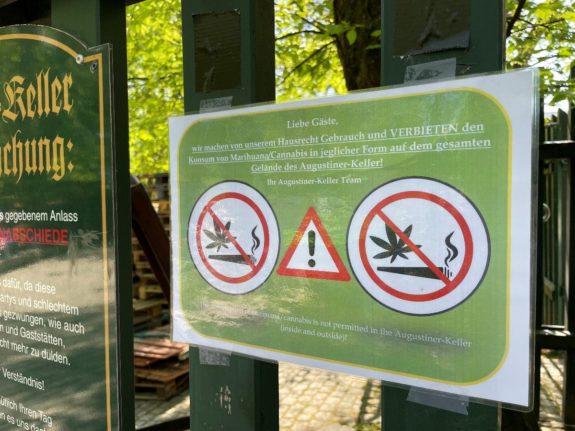Arguably the best part about being in Germany for the holiday season is visiting its famous Christmas markets. Between the lights, the food, the hand-crafted gifts, and warm drinks to share with friends, there is something for people of all ages and religious denominations to enjoy.
There is perhaps no better place to take in a Christmas market, than Bavaria, where virtually every village has its own Christkindlesmarkt, and some of them are among the biggest and most famous in the world.
Nuremberg Christmas market – Open from December 1st until Christmas Eve
During Nuremberg’s Christkindlesmarkt, red and white striped tents fill up the city’s main plaza, in front of the picturesque Frauenkirche, and food and drink stands extend along streets and alleyways throughout the old town. Dating back to the early 1600s, and now attracting two million visitors each year, Nuremberg’s is among the oldest and most famous Christmas markets in the world.
Germany’s festive gingerbread cookies (lebkuchen) are known to have originated here, as well as the little sausages named for the city (Nürnberger Rostbratwurst). Sweet and savory holiday delights go well with a steaming cup of sweet rum punch (Feuerzangenbowle), which is named for the tongs used to hold a burning, rum-soaked sugar cone as caramelised sugar drips into the wine below.
READ ALSO: When will Germany’s famous Christmas markets open this year?
Nuremberg is home to “the world’s largest Feuerzangenbowle,” and visitors can try a cup of its contents next to the Pegnitz river, just steps away from the central market.
Bamberg – Open from November 28th until December 23rd
Bamberg’s scenic old town and world famous breweries are always worth a visit, but stopping by in December allows you to see Maximiliansplatz brimming with Christmas festivities. This market is particularly renowned for its picturesque scenery, with Bamberg’s medieval and baroque architecture serving as a beautiful backdrop to any memories made here. Bamberg’s market is known in the region for having a large half-timber nativity scene.
Regensburg – Open from November 27th until December 23rd
Located roughly halfway between Munich and Nuremberg, Regensburg is among Germany’s best preserved medieval cities, and offers four beautiful Christmas markets which have earned it the unofficial title of “the Christmas market capital” of Germany. The city’s classic market is known for a carousel that is popular for kids, while its smaller Thurn and Taxis market is renowned for its exceptional beauty and cozy atmosphere.

Rothernburg ob der Tauber – Open from December 1st until Christmas Eve
Rothernberg is one of only three walled medieval towns remaining in Germany, and its cobbled streets and half-timbered homes are perhaps best admired when they’re fully decked out for the Christmas season.
The Rothernberg market opens with a horseman who rides into the market square to greet the guests waiting there before the central Christmas tree is lit. The drink of choice at this market is white mulled wine (weißer Glühwein), and a snack to look out for is Schneeballen, a powdered sugar coated pastry that resembles a snowball.
READ ALSO: 8 of the quirkiest Christmas markets in Germany
Munich – Open from November 27th until Christmas Eve
As Bavaria’s capital and most populated city, Munich is naturally home to the region’s largest Christmas markets. In fact it is home to at least five distinct markets, and the classic Christkindlmarkt on Marienplatz alone contains well over 100 merchandise and gastronomy stalls, and a 25 meter tall Christmas tree.
Beyond the classic market, visitors to Munich can also try the Tollwood Festival (for extravagant shows), the Weihnachtsdorf (for a traditional experience), the Schwabinger Weihnachtsmarkt (for arts and crafts), or the Pink Christmas market (for something very pink).

Smaller villages
Beside the bigger markets mentioned here, most villages in Bavaria host their own local Christmas markets, which are always worth a quick visit.
Local markets are significantly smaller than their big city counterparts, offering a more cozy and laidback Christmas market experience. Each village market comes with unique traditions and charms. They also offer significantly cheaper prices than can be found in the bigger, high-trafficked markets.
READ ALSO: 10 unmissable events in Germany this November
For example, just outside of Nuremberg, Erlangen offers three Christmas markets including medieval and forest themed markets. Taking a step further, in Altdorf bei Nürnberg, one can find a smaller, family-friendly market. At these smaller markets, one can see how Christmas markets bring local communities together, and how people still celebrate in many of the same ways that they did some hundreds of years ago.



 Please whitelist us to continue reading.
Please whitelist us to continue reading.
Member comments